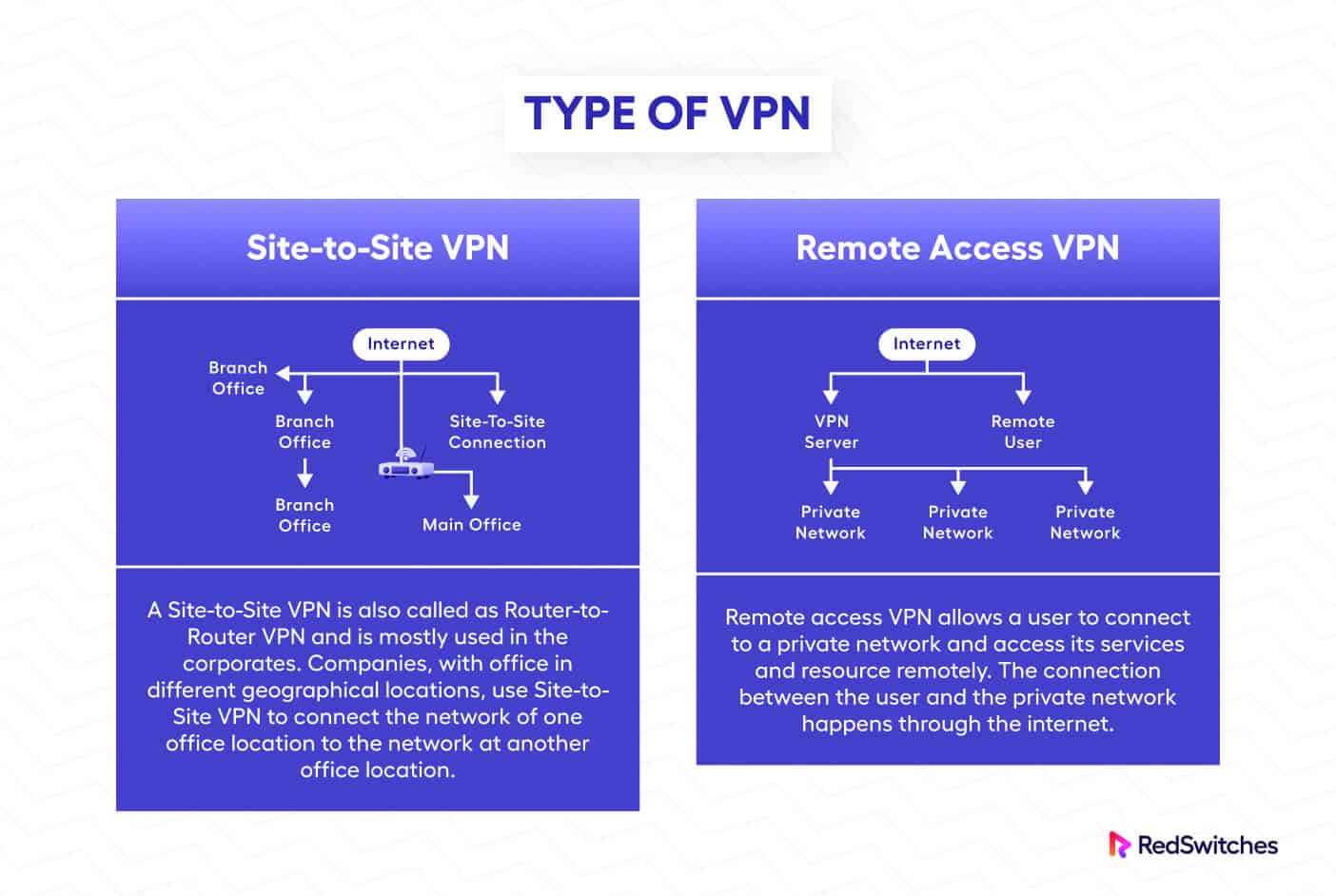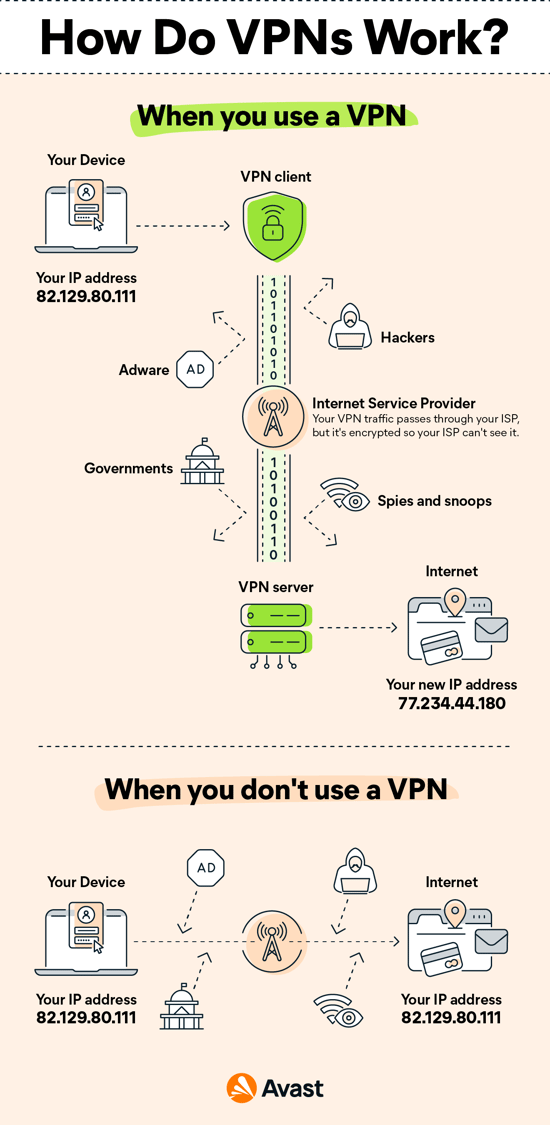Impact of Internet Speed on Work
With the increasing popularity of remote work and the growing reliance on VPNs for secure connections, internet speed has become a crucial factor in determining work efficiency. Slow internet speeds can severely hamper productivity and create frustrating experiences for individuals working remotely.
Remote Work
When working remotely, a stable and fast internet connection is essential for seamless communication and collaboration. Slow download and upload speeds can cause delays in file sharing, video conferencing, and accessing cloud-based applications. This not only affects employees’ ability to complete tasks in a timely manner but also hinders their overall productivity and efficiency.
Productivity
Internet speed plays a significant role in determining productivity levels. Faster connections enable quick loading of webpages and applications, minimizing waiting times for information retrieval. This ensures that you can swiftly jump from one task to another without wasting valuable time. Additionally, faster internet speeds contribute to reduced frustration and increased focus, allowing you to devote more time and attention to your work.
VPN Usage
VPN usage has become commonplace in today’s digital landscape. However, it can significantly impact internet speeds due to the encryption process involved. With slower connections, using a VPN can result in lagging video calls, dropped connections, and sluggish data transfers. Opting for a faster internet speed can enhance your VPN experience and ensure a smooth workflow, especially when dealing with sensitive information that requires secure transmission.
Internet speed plays a vital role in remote work, productivity, and VPN usage. Investing in a fast and reliable internet connection can significantly improve your work efficiency and overall experience while working remotely.

## Remote Work Challenges with Slow Internet Speed
Increased Latency
When it comes to remote work, having a slow internet speed can greatly impact your productivity. One of the main challenges you may face is increased latency. Latency refers to the delay in data transfer between your device and the server. With slow internet speed, the time it takes for your requests to reach the server and for the server to respond is significantly longer. This not only affects your ability to load web pages and access online resources quickly but also hampers real-time communication and collaboration with your colleagues.
Limited Access to Resources
Another challenge you may encounter with slow internet speed is limited access to resources. Many remote workers heavily rely on cloud-based tools, file-sharing platforms, and online databases to complete their tasks. However, with slow internet, downloading large files or accessing resource-heavy applications becomes a time-consuming and frustrating process. This can hinder your ability to work efficiently and impede your overall productivity.
Lack of Real-Time Collaboration
In today’s remote work landscape, real-time collaboration is crucial. However, slow internet speed can hinder your ability to collaborate effectively with colleagues, especially during video conferences or virtual meetings. Constant buffering, frozen screens, and poor audio quality can make it difficult to convey your ideas or understand others’ perspectives. This lack of real-time collaboration can lead to misunderstandings, delays in decision-making, and ultimately impact the productivity of your team.
A slow internet speed can pose several challenges for remote workers, particularly in terms of increased latency, limited access to resources, and a lack of real-time collaboration. To overcome these challenges, it is essential to ensure you have a reliable and fast internet connection to maximize your productivity while working remotely.

## Techniques to Improve Remote Work Efficiency with Slow Internet Speed
Using Offline Tools
When you have a slow internet connection, it’s important to be prepared with offline tools to keep your remote work productivity intact. Tools like offline word processors, note-taking applications, and project management software can help you continue working without relying on the internet. By using these tools, you can draft documents, jot down ideas, and organize your tasks even when your internet speed is sluggish.
Prioritizing Tasks
When you’re working with slow internet speed, it’s crucial to prioritize your tasks effectively. Focus on completing the most critical and time-sensitive tasks first. This way, you can make the most of the limited bandwidth available to you. By organizing and prioritizing your workload, you can ensure that you are efficient and achieve your goals despite the challenges posed by slow internet speed.
Optimizing Network Usage
To increase productivity, it’s essential to optimize your network usage. Close unnecessary applications and tabs that consume bandwidth. Prioritize work-related applications over leisure-based ones to ensure a seamless remote work experience. You can also schedule data-heavy tasks during periods of higher internet speed or bandwidth availability. By optimizing your network usage, you can make the most of your internet speed for work-related tasks and boost your overall productivity.
So, while slow internet speed may pose challenges for remote work, implementing these techniques can help you overcome them and maintain your productivity levels. Remember, it’s not always about the fastest internet connection, but how efficiently you utilize the resources you have.

## Productivity and Internet Speed
Slow internet speed can significantly impact your work productivity, especially when it comes to remote work and VPN usage. In today’s digital age, a fast and reliable internet connection is crucial for seamless communication, collaboration, and accessing resources online.
Effects of Slow Internet on Productivity
When your internet speed is sluggish, it can lead to frustrating delays and interruptions throughout your workday. Uploading or downloading files may take longer, video conferences may lag and freeze, and accessing cloud-based applications or databases may become a time-consuming task. These interruptions can break your focus and hinder your ability to complete tasks efficiently.
Factors Affecting Productivity with Slow Internet
Several factors can contribute to reduced productivity when dealing with slow internet speed. The size and complexity of the files you need to download or upload, the number of people sharing the same network bandwidth, and the distance between your location and the server can all affect your internet speed. Additionally, outdated or inadequate networking equipment and software can further impede productivity.
Mitigating Productivity Issues
To mitigate productivity issues caused by slow internet speed, there are a few steps you can take. First, ensure that you have a high-speed internet plan that suits your remote work requirements. Consider upgrading your networking equipment or relocating closer to your router for better signal strength. Prioritize your most critical tasks and schedule them during hours when internet traffic is lower. Additionally, if you rely on VPN usage for secure connections, choosing a VPN service with fast servers can help maintain productivity.
Remember, a fast and stable internet connection is vital for maximizing your productivity in remote work scenarios. By understanding the effects of slow internet on productivity and implementing the necessary measures, you can ensure a smoother and more efficient work experience.

## Importance of Internet Speed for VPN Usage
With the growing trend of remote work, VPN usage has become increasingly crucial for ensuring secure connections between employees and company networks. However, the performance and effectiveness of a VPN heavily rely on your internet speed.
VPN Basics and Speed Requirements
A Virtual Private Network (VPN) creates a private and encrypted connection over a public network, enabling you to access sensitive information securely. To ensure smooth VPN usage, a high-speed internet connection is essential. Without it, your VPN may suffer from slow loading times, frequent disconnections, and overall poor performance.
Impact of Slow Internet on VPN Performance
If you have a slow internet connection, your VPN experience may be frustrating. Slow internet speed can lead to laggy connections, causing delays in accessing files and applications. Uploading or downloading large files can become a time-consuming task, hindering productivity. Additionally, poor internet speed can result in dropped connections, increasing the risk of data breaches and compromising the security of your remote work environment.
Improving VPN Connectivity
To enhance your VPN connectivity, you can take several steps. Upgrading to a high-speed internet plan is advisable, as it ensures a seamless VPN experience. Additionally, optimizing your Wi-Fi network, avoiding bandwidth-intensive activities while using the VPN, and keeping your VPN software up to date can significantly improve performance.
A reliable internet speed is vital for effective VPN usage. By considering the impact of slow internet on VPN performance and implementing appropriate measures to enhance connectivity, you can maximize your productivity and maintain a secure remote work environment.
Benefits of High-Speed Internet for Remote Work
In today’s digital age, having a fast and reliable internet connection is crucial, especially for remote workers. Whether you’re attending virtual meetings, sharing files, or using a VPN, internet speed can greatly impact your work productivity.
Seamless Video Conferencing
A high-speed internet connection ensures smooth and uninterrupted video conferencing sessions. With a stable connection, you can communicate effectively, engage in real-time discussions, and participate in virtual presentations without any frustrating connectivity issues. This creates a more professional and efficient remote work environment, allowing you to fully engage with coworkers and clients.
Efficient File Sharing
Slow internet speeds can hinder the transfer of large files, leading to delays and reduced productivity. With a fast internet connection, you can effortlessly share files in seconds, eliminating the need to wait for long upload and download times. This allows for efficient collaboration and seamless workflow, ensuring that you can easily access and exchange important documents and resources with your team members.
Enhanced Collaboration Tools
Remote work often relies heavily on collaboration tools such as project management software, cloud storage, and virtual whiteboards. These tools require a fast internet connection to function optimally, enabling smooth navigation, real-time updates, and seamless integration. With high-speed internet, you can take full advantage of these tools, enhancing your ability to work collaboratively and boosting your overall productivity.
High-speed internet is essential for remote work. It enables seamless video conferencing, efficient file sharing, and enhanced collaboration tools, ultimately improving productivity and creating a more productive and efficient remote work environment.

## Balancing Security and Speed in VPN Usage
When it comes to remote work, productivity, and VPN usage, internet speed plays a crucial role in ensuring smooth operations. When you’re working remotely, a slow internet connection can not only hinder your productivity but also lead to frustration and delays in completing tasks. This is where VPNs come into play, providing a secure connection for remote workers. However, it’s essential to find the right balance between security and speed when using a VPN.
Choosing VPN Providers with Optimal Speed
Not all VPN providers are created equal, and some may impact your internet speed more than others. When selecting a VPN for your remote work, it’s crucial to choose a provider that offers optimal speed. Look for providers that have a reputation for delivering fast and stable connections, as this will ensure a seamless remote work experience.
Ensuring Secure Connections
While speed is essential, security should never be compromised. When using a VPN, it’s crucial to ensure that the connection is secure and encrypted. This protects your sensitive data from potential breaches and ensures that your remote work remains confidential. Always choose VPN providers that prioritize security protocols and offer features like DNS leak protection and kill switches to maintain a secure connection.
Increasing VPN Speed
If you find that your VPN is slowing down your internet speed, there are steps you can take to increase its performance. Firstly, connect to a server that is geographically closer to your location to minimize latency. Additionally, consider using lightweight VPN protocols that offer faster speeds without compromising security. Finally, close any unnecessary applications or background processes that may be consuming bandwidth, allowing your VPN to operate more efficiently.
By striking the right balance between security and speed in your VPN usage, you can ensure that your remote work remains productive and efficient. Choose a VPN provider that offers optimal speed, prioritize secure connections, and take steps to increase VPN speed if necessary. With a fast and secure internet connection, you can work remotely with confidence and stay connected to your colleagues and resources seamlessly.
The Role of Internet Speed in Work Flexibility
Enabling Work from Any Location
In today’s digital age, Internet speed plays a crucial role in determining the success of remote work, productivity, and VPN usage. With a high-speed internet connection, you can seamlessly connect to your company’s server, access files and data, and collaborate with colleagues regardless of your physical location.
A reliable and fast internet connection eliminates the frustration of slow loading websites, buffering video calls, and delayed file uploads and downloads. This ensures that you can work efficiently and effectively, without wasting precious time waiting for tasks to be completed.
Supporting Work-Life Balance
Internet speed is also vital for maintaining a healthy work-life balance. With a fast and stable connection, you can easily transition between work and personal tasks, ensuring that you have enough time for both. This flexibility not only improves productivity but also enables you to meet family commitments or engage in leisure activities without compromising your work responsibilities.
Expanding Business Opportunities
Furthermore, a high-speed internet connection opens up a plethora of business opportunities. With a reliable connection, you can readily connect with clients, partners, and customers worldwide, conduct online meetings and presentations, and seamlessly share large files. This enhances your ability to expand your business reach, collaborate effectively, and establish a global presence.
Internet speed is a critical factor in remote work, productivity, and VPN usage. It enables work flexibility, supports work-life balance, and expands business opportunities. With a fast and reliable internet connection, you can optimize your work performance, enhance collaboration, and successfully navigate the digital landscape.
Impact of Internet Speed on Virtual Teamwork
Real-Time Collaboration Challenges
Having a fast and reliable internet connection is crucial for virtual teamwork. Slow internet speeds can hamper real-time collaboration between team members, making it difficult to communicate effectively and share information in a timely manner. Video conferences may be plagued with lags and interruptions, hindering smooth discussions and collaboration. Slow internet can also lead to delays in file sharing and document editing, causing inefficiencies and frustration among team members.
Effective Communication with High-Speed Internet
With high-speed internet, virtual teams can enjoy seamless communication. Video conferences will be smooth and uninterrupted, allowing for better engagement and effective discussions. Quick file sharing and real-time document editing become possible, facilitating efficient collaboration. Fast internet also ensures that messages and emails can be sent and received promptly, enabling clear and timely communication among team members. This promotes productivity and helps maintain a strong sense of connection and unity within the remote team.
Reduced Downtime for Remote Teams
Reliable internet speed is essential for remote teams to avoid unnecessary downtime. A slow internet connection can lead to frequent disconnections and delays in accessing critical resources, applications, or online tools. This can disrupt workflow, hinder productivity, and cause frustration. With a fast and stable connection, remote teams can work seamlessly without interruptions, accessing all necessary resources and systems required for their tasks. This reduces downtime and ensures that productivity remains high, enabling remote workers to stay focused and meet their deadlines effectively.
Internet speed greatly impacts virtual teamwork. Fast and reliable internet allows for smoother real-time collaboration, effective communication, and reduced downtime. It enables remote teams to work efficiently and achieve their goals, ultimately leading to increased productivity and success.
Overcoming Internet Speed Constraints in Remote Work
Remote work has become increasingly popular in recent years, allowing individuals to work from the comfort of their own homes or any location of their choosing. However, the success of remote work is heavily dependent on a reliable and fast internet connection.
Using Local Copies of Files
One way to mitigate slow internet speeds is by utilizing local copies of files. When working remotely, rather than accessing files directly from the internet, you can download and save them onto your device. This allows you to work on the files offline and then sync them back to the cloud when your internet connection improves. By doing this, you can continue working seamlessly without interruptions caused by slow internet speeds.
Implementing Compression Techniques
Another useful technique is employing compression methods to reduce the file sizes that you are transferring over the internet. Compressing files can significantly decrease the time it takes to upload or download them, especially for larger files. Many file compression software options are available, making it easy to reduce the file size while still maintaining the integrity of the data.
Employing Task Schedulers
Task schedulers can also help overcome internet speed constraints. By utilizing task schedulers or task management tools, you can divide your work into smaller tasks and set them to run during off-peak hours when internet usage and congestion are minimal. This allows you to complete your work efficiently without experiencing delays caused by high internet traffic.
In conclusion, a fast and reliable internet connection is crucial for successful remote work, productivity, and VPN usage. By implementing strategies such as using local copies of files, compressing data, and employing task schedulers, you can overcome internet speed constraints and optimize your remote work experience.

3 replies on “How Does Internet Speed Impact Work, Especially For Remote Work, Productivity, And VPN Usage?”
[…] Solutions to Improve Internet Speed in Rural […]
[…] Internet Speed brings improved network reliability, expanded coverage, and addresses connectivity challenges in […]
[…] you have a slow internet speed, you may experience high latency, resulting in delay between your actions in the game and the […]